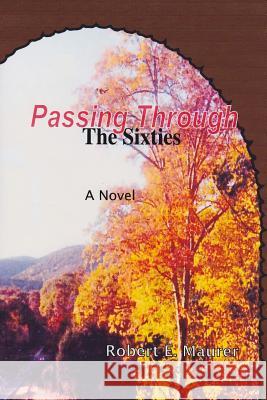Passing Through (The Sixties) » książka
Passing Through (The Sixties)
ISBN-13: 9781523728275 / Angielski / Miękka / 2016 / 322 str.
DANIEL GENS, a student at New York's Morningside Heights University (MHU), promises the girlfriend of Peter Hunting, the first American noncombatant killed by the Viet Cong, to write a letter-to-the-editor of The New York Times about Peter's life. When the letter is not published, Daniel's attempt to dispatch his promise in another way leads him to an early anti-war organizing meeting. Daniel meets CHRISTIE, groomed by her deceased mother to be the proper hostess, EPHRAIM, son of a Lower East Side kosher butcher, and JEFF, from a Midwest farm family. Their individual and collective intent over the next three years is to change the course of American political history. Their step-by-step radicalization, however, places the activist quartet in tragic conflict with their lagging psychological capacity to cope with the change they seek to create. Shadowing the four are "spirits" of Original People: Montaukett, Lenni-Lenape, Munsee, and Anishinaabe. These spirits contrive to aid the four activists. A fellow activist, ARTHUR, born in Albany, Georgia, teaches Daniel about the subtleties of northern racism at a roadside diner just outside Albany, New York. A Cornell student, Arthur finds himself at a demonstration in a most unlikely place. Motion is the new coinage of this political change. As he passes through many locales, Daniel confronts the legacy of his old world of obligation buried within his new world of freedom. Caught up in the dynamic of their own collective creation, the quartet simultaneously seeks to shut down a powerful institution. How they react when their movement--physical, emotional, mental-is frozen, shows how an era ended. Early on, Daniel first wonders about and then discovers a secret locked in his grandmother's steamer trunk. A confrontation over the secret ends badly for both. In the end, grandmother and grandson finally find a way to release in the other the burden and guilt of living lies. The "sound" of the activist Sixties is represented at the start of each chapter by the titles and performers of freedom, rock 'n' roll, folk, and international songs popular at the time. Substantial Endnotes anchor the action of the novel to historical events and references.
Zawartość książki może nie spełniać oczekiwań – reklamacje nie obejmują treści, która mogła nie być redakcyjnie ani merytorycznie opracowana.











